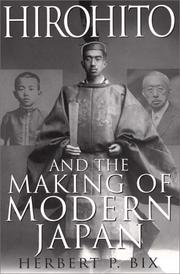Bix demonstrates persuasively and meticulously that the western conception of Hirohito as a passive ruler (used instrumentally by militarists surrounding him) is false. Instead, the emperor and his court actively perpetuated and shaped the role of imperial ideology in modern Japan. Hirohito idolized his grandfather, the Meiji Emperor, and was deeply invested in surpassing what he perceived as faults of his father, the reclusive and sickly Taisho. During Hirohito’s reign, the emperor and his court maintained the imperial house’s divinity, traced to ancestral lineage from the Shinto goddess Amaterasu. The court, military, and factions within Japan’s civilian government upheld this belief, their engagements with it reflecting their preferred visions for the country (this is visible in the struggle between the Imperial Way and Control factions within the military, and Prime Minister Konoe’s articulation of Hakko ichiu).
A different path might have been open to Japan in the period before and around Hirohito’s ascension, where the country might have continued towards constitutional monarchy. However, this would’ve required a commitment that Hirohito was disinclined to provide. Ultimately, in a mixture of collaboration and refusal to check the ambitions of the separate military branches, Hirohito’s decisions (and acts of omission) helped overextend Japan’s military, and pushed the country towards a virtually inevitable defeat.
